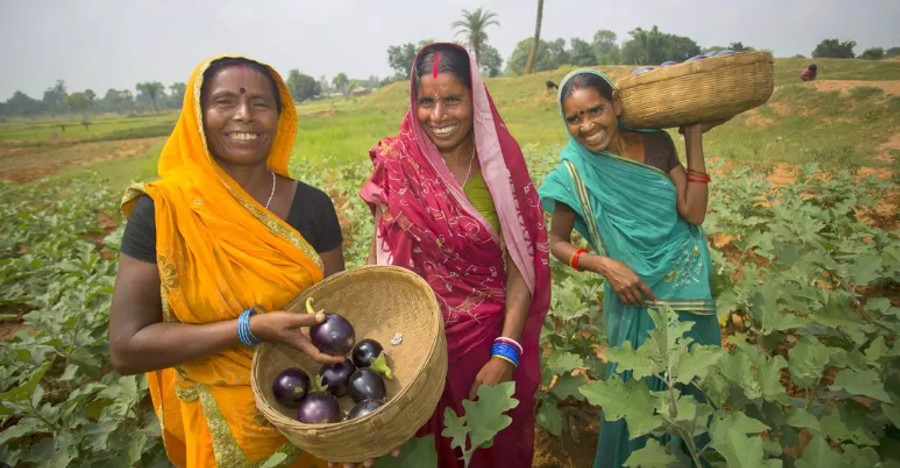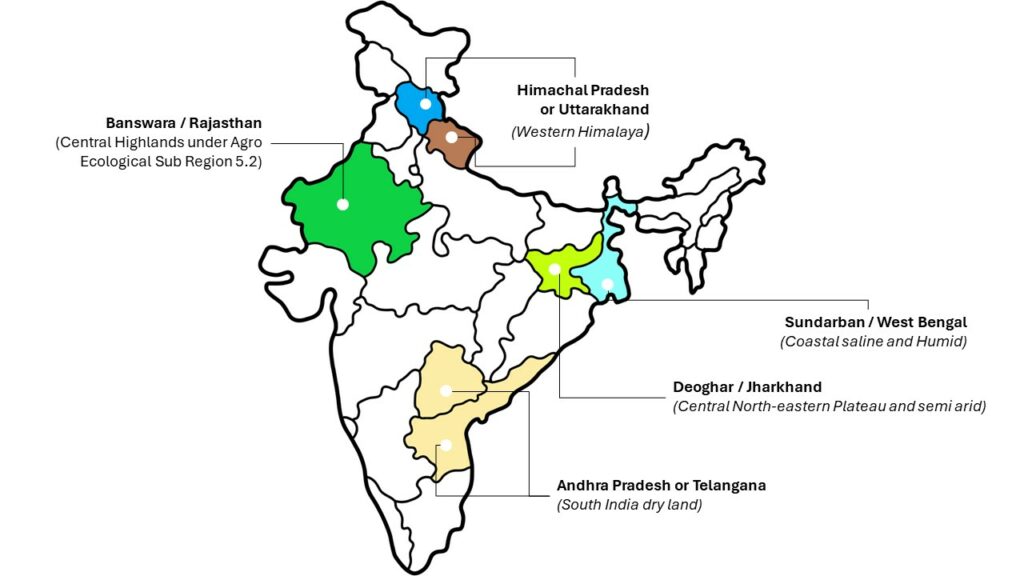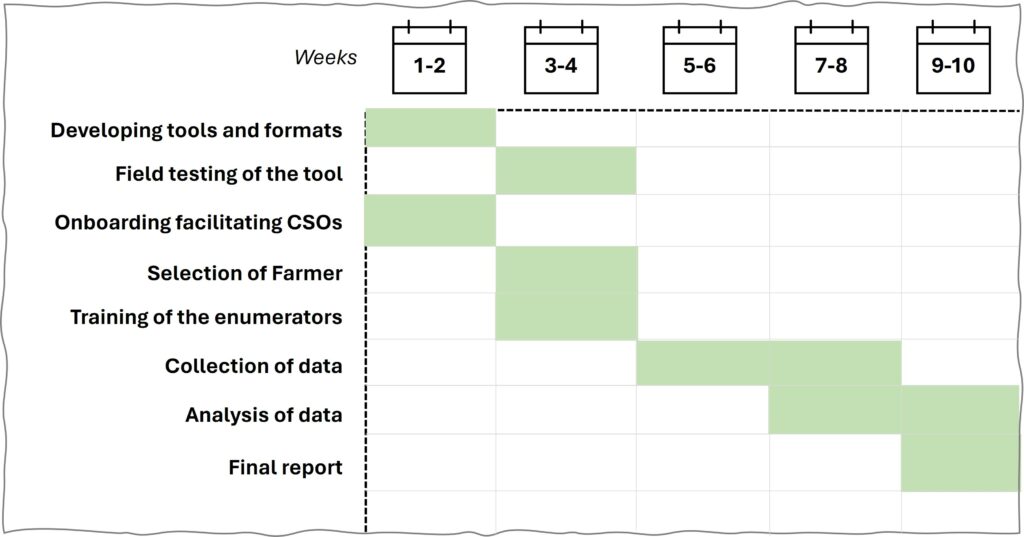Get in Touch
We are here to help you 7 days a week and respond within 24 hours. Plus, you can find most answers to your questions right on FAQ page.

Watershed Support Services and Activities Network (WASSAN)
Home >
Fellowship
Multicomponent Natural Farming with its production elements interacting with each other to reduce external input and improve total farm biomass production is practiced in various farms in pockets of India. This principle has been a commonly practiced by small and marginal farmers and has also been fine tuned by many institutes and Civil Society Organisations as Integrated Farming, Ecological Farming etc. A short-term study is planned to understand the impact of such farming practices based on the principles of natural farming on the nutrition of the farmer’s family and the locality.

The project reference: The study is planned to be commissioned from the project ‘Promotion of Sustainable Integrated Farming System through Multiactor Partnership’ by Welthungerhilfe India, DRCSC, PRASARI and WASSAN, supported by BMZ.
Research Hypothesis
The study is based on the hypothesis that Natural Farming, which diversifies and integrates production elements, can lead to better nutrition of farmer families. Assessing the performance of 100 natural farmers for their production, nutrition profile, food and nutrition diversity in 5 study regions from across the country will help to understand the current status of the stated hypothesis.
Research Question and Objectives
The study will try to figure out to what extent natural farming supports improvement of nutritional quality of a farmer family through the following objectives –
Suggested Research Methodology
The 100 farms (80 NF and 20 non-NF as control) will be selected and interviewed from
1. Banswara / Rajasthan (Central Highlands under Agro Ecological Sub Region 5.2)
2. Himachal Pradesh or Uttarakhand (Western Himalaya)
3. Sundarbans / West Bengal (Coastal saline and Humid)
4. Deoghar /Jharkhand (Central North Eastern Platuae and semi arid)
5. Andhra Pradesh or Telangana (South India dry land).
The farmers who are practicing diversified and integrated natural farming for 7~10 years will be selected.

The farms will be evaluated for their:
The required data will be collected by the enumerator from the CSOs who has facilitated the NF process who will be trained on the data collection and interviewing tool.
Suggested Timeline

The Consultant is expected to submit
Research methodology
Timeline
Financial Proposal
CV with reference to similar studies
The consultant needs to submit the proposal by 12th February, 2024 to fill up the Google Form [https://forms.gle/qbakNKs7FJnZDg9ZA].
We are here to help you 7 days a week and respond within 24 hours. Plus, you can find most answers to your questions right on FAQ page.
Plot No. 685 & 686, Street No. 12, Narasimha Swamy Colony,
Nagole, Hyderabad – 500 068, Telangana, India
Tel No: +91 (40) 29555295
Mail: mail@wassan.org
@2022 | Watershed Support Services and Activities Network (WASSAN)